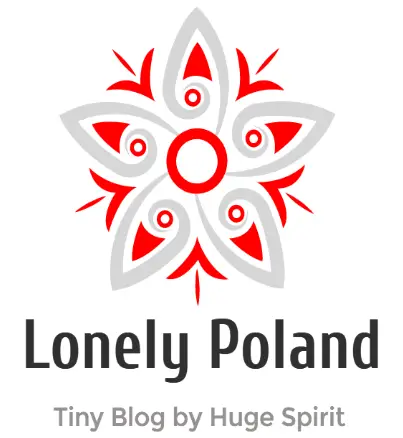The name of our country, Poland, is pronounced similarly in many parts of the world. For instance “Polsko” in the Czech Republic, “Polen” in Germany and Scandinavia, and “Poland” in England or “Pōlani” in Hawaii. However, some people refer to Poland with exotic-sounding names like “Gwlad Pwyl” or “Ba Lan.” Additionally, there are Polish nicknames that are not related to the name of the country, but rather to what it is known for. Some examples of these nicknames include:

Cebulandia – „Onion-Land”
This nickname is used jokingly to describe someone who tries very hard to save money in order to achieve a goal. It refers to Poles or cheap, and it comes from the fact that onions were one of the only vegetables readily available in stores during the communist era in Poland. During this time, store shelves were often empty, and even if people managed to find something to buy, they often didn’t have enough money to purchase it. Despite this, onions were always available, leading to the nickname “onion-men” or “onions” for Poles today. This nickname not only applies to the nation as a whole, but is also used to describe individuals who exhibit this behavior. We (Poles) use this nickname among ourselves. It is not known well for foreigners.
Yes, it’s true that many Poles have a reputation for being frugal and bringing food with them when they travel. This behavior can be seen as a result of the country’s history and the challenges that Poles have faced in the past. However, it’s important to note that this is not true of all Poles, as we laugh from this as well.
Polsha – Russian Style Nickname
The term “Polsha” is derived from the Russian name for Poland, and it is sometimes used by Poles themselves to refer to the country. However, this term has negative connotations and is associated with the post-communist or communist era in Poland, when the country was ruled by the Eastern Bloc and living conditions were difficult. During this time, Poland had a socialist system and capitalism was viewed negatively. There were shortages of goods in stores, and many Poles felt they had to look westward to countries like Germany or even Canada to find opportunities for work. Because of these associations, the nickname “Polsha” is often used to evoke the difficult times and the old system from this period in the country’s history.
↳ PRO TIP: Do you like traveling? Then before you buy any ticket or book an attraction, check if it's available in this worldwide Viator Database. You may save a lot of money and time. No need to thank me :)
Jars (Słoiki)
The term “słoik” or “jar” refers to someone who comes from a small town and has moved to a big city, like Warsaw, for work or education. During the week, they work hard in the city, but return to their family’s home in the countryside on the weekends. The term comes from the fact that these people often bring food with them in jars when they return home for the weekend.
This term is not necessarily tied to nationality, but rather describes a certain lifestyle or background. A “jar” is someone who is supported by their family in a small village while working and living in a large city. It do not have any negative connotations though.
Polonia
“Polonia” is a term that refers to the Polish diaspora, or the community of people of Polish ancestry living outside of Poland. It can be used in a broader sense to encompass all Poles living abroad, or in a narrower sense to refer specifically to people who were born outside of Poland but feel a strong connection to their Polish heritage.
This term is commonly used to refer to Polish communities in countries such as the United States, Canada, France, and Brazil, Argentina where many people have grandparents or great-grandparents who emigrated from Poland. “Polonia” is also the official term for Poland in certain countries, such as Italy, Spain, Romania, and Greece (where it is pronounced “Polnia” and “Polônia,” respectively).
Please check on my other article in which I present the results of my analisys of how many polish people living in the world there are. You will find out that there is huge percentage of Poles in U.S.A.
Bonus: How is Poland referred to in other countries?
In many countries around the world, Poland is referred to by similar-sounding names. For example, it is called “Polsko” in the Czech Republic and Slovakia, “Polsha” in Russia and Belarus, and “Polijska” in Bosnia, Slovenia, Croatia, and Serbia. In Germany, Scandinavia, and the Benelux countries, the name “Polen” is derived from “Polanie,” which means “the country of the Poles.” Please check the other article I wrote about origins of the „Poland” name.
However, there are some countries where the name for Poland does not seem immediately recognizable as referring to our country. For example, in Hungary, Poland is called “Lengyelország,” and in Lithuania it is called “Lenkija.” These names are likely derived from the Lędzian or Lędzic tribe, which inhabited Polish territory centuries ago.
Similarly, in Turkey, Armenia, and Persian-speaking countries like Iran, Poland is called “Lehistan,” “Lehastan,” or “Lahestan,” which are derived from the Ruthenian word “Lach,” a shortened form of “Lechians.” It is often thought that the name “Lechites” refers to the legendary figure Lech, who is said to be an ancestor of the Polish people, but this is not actually true. The name is actually derived from this shortened form of “Lechians.”
In some countries, Poland is called by names that are quite different from those used in other parts of the world. For example, in Iraq and Afghanistan, Poland is referred to as “Bulanda,” which is derived from the word “Bulania.” This term originated in a time when the Polish language was not yet fully developed, and it was used to refer to the territories that make up modern-day Poland.
Similarly, the Chinese and Vietnamese names for Poland, “Bōlán” and “Ba Lan,” respectively, may also have roots in the word “Polan,” although it has been suggested that these terms derive from a different source.
In Wales, Poland is called “Gwlad Pwyl,” with “Gwlad” meaning “wool” and “Pwyl” potentially also referring to Poland. This name may be related to the agricultural history of the country. Overall, it is difficult to pinpoint a single origin for the word “Poland,” as it has been called by many different names in various languages throughout its history.
Other names for Poland are:
- France: “Pologne”
- Latvia: “Polya”
- Turkey: “Polonya” (or “Lehistan”)
- North Korea: “Polonya”
- South Africa: “Pole”
- Ireland: “Polainn”
- Georgia: “Poloneṭi”
- South Korea: “Phollandy”
- Finland: “Puola”
- Somalia: “Boolaand”
- Estonia: “Poola”
- Iceland: “Pólland”
- Suriname: “Polikondre”
- Uganda: “Bupoolo”
- Thailand: “Polaen”
- Japan: “Pōrando”
- Israel: “Polin”
In conclusion, Poland is known by a variety of names in different parts of the world. Some of these nicknames are pronounced similarly to the English word “Poland,” while others are quite different. The origin of these names can be traced back to the country’s history and the various languages spoken in different regions. It is interesting to see how the name of a country can vary so greatly depending on the perspective of the people using it.
Bibliography
- https://pl.wiktionary.org/wiki/Gwlad_Pwyl
- https://dojrzalakobieta.pl/polska-cebulandia/




